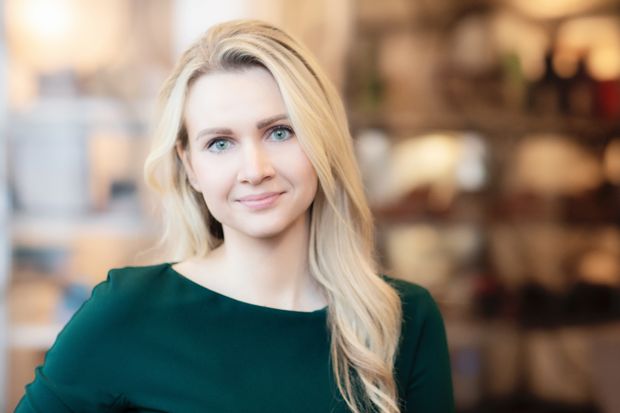
- Programme studied: Executive Global Masters in Management
- Year of Graduation: 2019
- LinkedIn profile
Our April Alum of the Month is Marina Arnaout, a global technology professional who has worked across Canada, the US, Latin America, and Europe. She currently resides in London working at Microsoft, focusing on helping Financial Services organisations innovate with technology and accelerate digital transformation.
What’s your current job? Business Applications Lead for Financial Services at Microsoft.
Where have you worked previously? I have always been helping organisations embrace digital technology. Prior to living in London, I was Regional Head of Digital at SAS Software leading a team in Canada and Latin America. My responsibilities included leading an international team in executing the regional strategy as well as being one of the leads in the global digital plan, which gained me multiple industry awards. It was my role at SAS which inspired me to step outside of my comfort zone, move to London and pursue a postgraduate degree with a focus on global business.
Your current role focuses on impact of technology on the Financial Services industry. Can you share more about this?
Throughout my career, I have been interested in taking the lead in change management of enterprise organisations through technology and the tangible impact that success of these strategies has on their bottom line, which consequently has a positive impact on the economy. Successful technology strategies for organisations is essential and since Financial Services is one of the largest industries, especially in the UK, I decided to narrow in my expertise and focus my academic research on the topic. My LSE dissertation explored the impact of technology on the customer in financial services, via interviews with executives in top tier financial institutions and analysing common themes. It became clear that it’s an exciting time with great opportunities; however, the pace at which change happens is a common challenge across the industry.
How has studying at LSE’s Department of Management allowed you to make an impact in advancing business?
My academic research directly addressed a gap in the industry. I discovered that as a result of AI, the UK’s GDP is predicted to be around 10% higher in 2030 and one of the main contributors to the UK's economic gains between now and then. However, despite the promising future, organisations will struggle to keep up with this. For example, 92% of top consultancies say they need to evolve from their existing business models but don’t know how. There has been little empirical academic research done covering the frameworks through which the transformation can be supported, especially as it relates to financial services. My research worked to address this ambiguity for advancement in business. I’ve also contributed to industry thought leadership such as UK Finance white papers, various Microsoft articles, and business publications such as Entrepreneur.com where I share my industry perspective. This field is something I hope to continue contributing to with research as I progress in my career.
You’ve had a particularly interesting career so far. How has studying at LSE helped to shape your approach to working in a field where women still remain a minority?
My outlook has always been to follow my own path and goals, no matter how unconventional things may seem. Likewise, I’ve never felt like I can’t do something merely because somebody else took a different route to get there. The diversity of my experience has meant that every step had an intentional challenge where I not only succeeded but also raised the bar.
My advice to others would be to set goals, always keep learning, be confident, act fearless, and measure yourself only against your previous self. When it comes to fields with women being a minority – don’t pay attention if the narrative feels against you.
LSE for me acted as an enabler of change. It served as an example that if you work hard, you can achieve your goals. The LSE experience further paved my path and got me one step closer to my aspirations. My postgraduate degree enabled me to start a new chapter by not only switching locations from Toronto to London, but also join Microsoft and become more specialized in the financial services and tech industries. Personally, it also allowed me to further identify what I want and what I don’t want – and all is still just getting started!